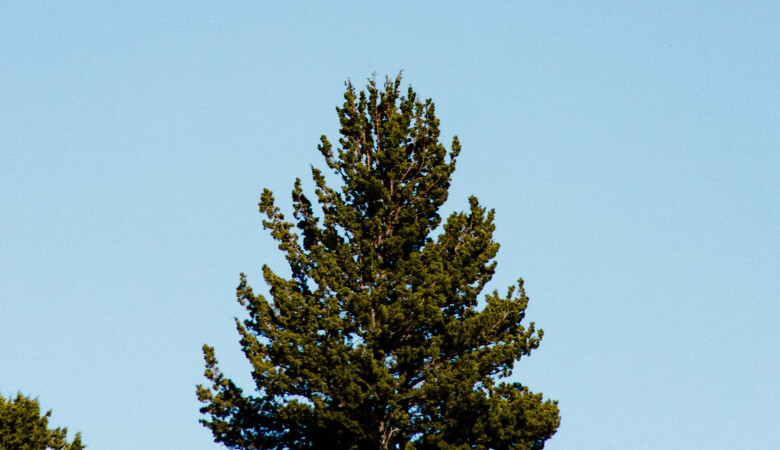Do Not Grow Weary in Doing Good: Your Salvation Depends on It! (Galatians Sermon 24 of 26)
June 15, 2014 | Andy Davis
Galatians 6:7-10
Sowing and Reaping
Pastor Andy Davis preaches on Galatians 6:7-10, considering that we reap what we sow and the dangers of weariness in doing good, and the importance to sow to the Spirit.
I. The Danger of Weariness in Doing Good
Amen. One of the greatest tragedies I think of our life in this world, this life in the flesh, is the proneness that all of us have toward boredom, toward weariness of good things. The fact that things wear off, that they don't have the same impact on us as time goes on. And that is a great grief to us. The first time I probably noticed it, and I've mentioned it before in passing, is Christmas day when I didn't have the same delight in the afternoon that I had with the toys I received in the morning. Do you remember that feeling? And it's like, I still can't believe when kids come to us and say, "I'm bored" on Christmas afternoon. How does that even happen? How do we grow weary with the good gifts of life? How is that even possible? And it's something I've seen in my own life, again and again. I remember going on a trip with my daughter Jenny, and we were in Switzerland, I'd never been there before, always wanted to go there and just felt so privileged by God to be there. And we had, from our hotel room, probably the most spectacular scenery I've ever seen in my life from a hotel room.
I've been in a lot of hotel rooms, I've been to some in some places where you look out and you're not seeing that kind of scenery. And so I thought, "Boy, this is beautiful." And it was breathtaking and amazing. But as the week went on, as the week wore on, it just wore off. And it just didn't have the same impact. I thought it was beautiful and all that, but I could see how people who lived there all their lives would barely even notice it. I remember another time I flew to Southern California, I flew from Massachusetts in March, and I was to be a best man at a good friend of mine's wedding. And March in Massachusetts is among the ugliest things in God's universe. There is sand and salt all over the roads, and everyone is just so waiting for spring and it just never seems to come. And then I got off this airplane in LA, and it was 68 and a nice gentle breeze and fair weather clouds. And I said to my friend Mike, I said, "Man, the weather here is amazing." He said, "Yeah, I guess it is." He lived there, and yes, he wasn't a native of Southern California but he was just so used to it, it didn't mean anything to him.
This happens to all of us. And this is something we all face. I had the privilege of being at a wedding yesterday, and it was just amazing to see the way the couple look at each other, but then just give it years and it just isn't the same. Alright? [Maybe I'm wrong in this case, I don't know, but I doubt it. It's not for the older to discourage the younger, but just to say it just isn't the same, things just wear off, it's just a different feeling. And so it is with possessions, you buy a new car, you're so excited, you can't wait to drive it. And then time wears on, and some dings, some scratches, and it just isn't the same. It is with all possessions. And I think it's just part of the life that we live in this sin-cursed world.
The book of Ecclesiastes embraces this idea of the weariness that comes in life. Right at the beginning in Ecclesiastes 1, it says, "Vanity of vanities." "Vanity of vanities,' says the preacher. All is vanity. What does man gain by all the toil at which he toils under the sun? A generation goes, and a generation comes, but the earth remains forever. The sun rises, the sun also sets and it hastens around to the place where it rises again. The wind blows to the south and it goes around to the north, around and around goes the wind. And on its circuits, the wind returns. All streams run to the sea, but the sea is never full. To the place where the streams flow, there they flow again." Ecclesiastes 1:8 "All things are full of weariness, more than the tongue can tell. The eye is not satisfied with seeing and the ear is never satisfied with hearing." It's just the nature of this life that we live under the sun as it says in Ecclesiastes 1, that we get bored and we get weary of things.
And the greatest grief there is in that whole topic, is when it gets applied to our walk with Christ. And it gets applied to spiritual things, that's when it's really grievous. People begin the Christian life filled with zeal, filled with energy, filled with the joy of the Lord, filled with a sense of gratitude at salvation. It's almost like you can scarcely believe it, you think about the apostles in the upper room when they're seeing the resurrected Christ, and it said, "They couldn't believe it for joy." It was like it was too good to be true that Christ had risen from the dead. New Christians are zealous and excited, and they're eager for Bible study, and they love to go to church. And they are so excited as they're witnessing to their friends, and there's all that youth and that young zeal, but then as the years wear on, the zeal tends to abate, and there's not so much excitement in the Christian life.
It is in a microcosm with aspects of our Christian faith, we can try something new. A new ministry, and you're all excited, and you're going, and things are happening but then it wears off and it gets a little bit hard and it just isn't the same. We find attendance patterns at FBC like that. You have a new Bible for Life class or a new Wednesday Night, and the attendance peaks out and then drains off, the same thing happens with home fellowships. It happens even at the church generally, people come to FBC, and they're just so excited when they first come, and they love the teaching and preaching ministry, they love the music, they love the people, it's just so friendly and everything's so wonderful. And then in some cases, you hear a couple three, four years later, there's not that zeal, there's not that energy, there's a weariness that's come. And it's not so much that the church is worse or different, it's just that their own hearts have grown cold over time.
We hear sometimes about the distance to travel. I find that interesting because we haven't moved, and the people haven't moved and it's the same distance that's it's always been. But it feels longer now than it did when we first came and that really is a heart state. It's got to do with their own lack of that excitement that they had when they first came, but the worst of all is just when it comes directly to your walk with God, directly to your relationship with Jesus Christ. You think about what God said to Israel speaking in poetic kind of marital language. In Jeremiah 2:2, he said, "I remember the devotion of your youth, how as a bride you followed me in the desert." I remember how it was back then with you. And then of course in Revelation 2, Jesus says to the church at Ephesus, "I have this against you, you have forsaken your first love. Remember the height from which you have fallen, repent and do the things you did at first."
You remember how it was in the beginning of your walk with Christ? How could it be that we grow weary with Jesus? How could that ever be that we grow weary with aspects of the Christian life, that we grow weary of the Bible or grow weary of good Christian fellowship or worship? How does that happen? And even more significantly, how can we combat it? It says in Malachi 1:13, the Jews were saying of the sacrificial system there. They were saying, "What a burden!" And they sniffed at it. And sometimes the Christian life can feel like a burden, the ministry can feel like a burden and you can sniff at it and act contemptuously toward it. And you don't realize what's really gone on is the corruption of your own heart. I really think weariness of every or any aspect of the Christian life is an act of the flesh. It's not listed there but I think that's what the flesh does, it makes us grow weary of things that we were initially really joyful and excited about.
"I really think [the] weariness of every or any aspect of the Christian life is an act of the flesh."
I struggled with this whole idea a year ago, as I was thinking about yet another Easter sermon, and I've been here, now I'm in my 16th year, and I was just wrestling with what new things can I say about the resurrection of Jesus from the dead, and I had an idea, I remember this, and then I went to the... The internet never forgets. And there it was, that idea had been unfolded before your ears seven years ago, something like that, and there's nothing I can do. And I don't think it's plagiarism for me to preach my same sermons again, but I just didn't want to do it. I know someone would say, "Hey, it was better the second time." Somebody would say something because there's just no forgetting, so I came back to that question, "What am I fighting here? Why do I have to think of something new to say about the resurrection of Christ?" And I think it had to do with this issue of weariness or boredom that we can have in the Christian life.
And I started to meditate on heaven and I thought, I don't think that in heaven, God is going to be showing us infinitely, endlessly new tricks. I think we'll be cured of the boredom, Amen. We'll be cured of the boredom. And he will just show us Christ resurrected and glorified, and that will be forever enough for us. And I don't say in any way that God wouldn't or couldn't have infinite new tricks to show us, He's an infinite being, but I just don't think we'll need them, not like we do here in this weary world that we live in. Our minds wander, our hearts grow weary, and we lose interest. But it says in Isaiah 40, "Do you not know? Have you not heard? The Lord is the everlasting God, the Creator of the ends of the earth. He will not grow tired or weary. His understanding no one can fathom. He gives strength to the weary and increases the power of the weak, even youths grow tired and weary and young men stumble and fall, but those who hope in Lord will renew their strength, they will soar on wings like eagles, they will run and not grow weary, they will walk and not be faint."
My prayer today, and my whole purpose in preaching this sermon, is to plead with you to not grow weary in doing good. That you will continue to do the good that's essential to your salvation. You must keep doing good in order finally to be saved. You must run this race to the end. You must not grow weary in doing good, your soul depends on it. My desire is to preach in such a way that you'll be renewed and refreshed in your journey today, that you'll be strengthened so that you can continue to run the race of salvation. Look at verse 9, that's why I'm talking about this whole topic, Paul is writing here to warn the Galatians against weariness in the Christian life, verse 9 it says, "Let us not become weary in doing good, for at the proper time, we will reap a harvest if we do not give up." He warns them, really, to use the language of earlier in Galatians to keep on running the good race that they were running.
Look back one chapter at Galatians 5:7, there he says, "You were running a good race. Who cut in on you and kept you from obeying the truth?" The idea there is you're running in obedience to the truth. You're going to keep obeying the truth, keep running this race, through obeying the truth, who stopped you from that? Now, we know just from the context here who stopped them were the Judaizers, these false teachers that came in after Paul had planted this beautiful church or these churches, and they came in and were preaching a false gospel. A gospel of works righteousness, of legalism, a teaching that your sins are forgiven based on your obedience, your unaided obedience to the law. And that legalism is poison, it's not a true gospel. And Paul wrote Galatians to teach them again the basics of the Christian faith of justification by faith in Christ alone, apart from works of the law. We sinners are made right with God, we are forgiven simply by faith in Jesus Christ the Son of God crucified, dead, buried, raised on the third day. This Jesus is the Saviour for sinners like us, and all you to do is trust in Him, all you have to do is repent and believe in Him and all your sins are forgiven. You will be held to be righteous on Judgment Day, you will not be condemned, but you'll have eternal life.
That's the Gospel and Paul's writing them to teach them that justification is by faith alone, not by works of the law but then now in Galatian 5 and 6 he's asking, “what kind of life will you live if you've really been justified?” We're not justified by works but what kind of life will you live? And he's been talking about this battle that we have between the indwelling Holy Spirit and the indwelling sin, the flesh, and that the true Christian life, having been justified by faith, we are given the gift of the indwelling Spirit, and we then run a race of holiness. It's a race in which we're constantly battling against the works of the flesh, and we yearn to be characterized by the fruit of the Spirit. That's what he's been talking about, and he's saying don't grow weary in doing that. Don't grow weary in sowing seeds to the Spirit.
II. God Cannot Be Mocked: You Reap What You Sow
Don't sow seeds to the flesh. Run this Christian race to the end for in due time, at the proper time, your labors will be done and you'll be in heaven. Run this race with endurance. That's what he's doing and that's my yearning for you is that you would walk or run by the Spirit and not gratify the desires of the flesh, Galatian 5:16. Let's start at the beginning here in verse 7, as you heard Chris read, it begins with this very striking verse. It's a very striking verse, "Do not be deceived," there it says, "God cannot be mocked, a man reaps what he sows." We come face to face here in this verse with the infinite majesty, the transcendence of Almighty God. We're looking at a God who cannot be mocked. He is an infinitely majestic transcendent being. This God who cannot be mocked, it says in Isaiah 40:22, "Sits enthroned above the circle of the earth, and its people are before him like grasshoppers. He stretches out the heavens like a canopy, He spreads them out like a tent to live in." In that same chapter, in verse 15, Isaiah 40:15, he said, "Surely the nations are like a drop in a bucket. They are regarded as dust on the scales and He weighs the islands as though they were fine dust." This God is infinitely high and lifted up. He's sitting on the throne of the universe.
Now as we look at this verse we think immediately, if you think about it, you might say, "I don't know that that's true. I don't know that that's true. Is it really true that God cannot be mocked? Is it really true that God cannot be blasphemed?" Like Isaiah, remember how Isaiah said, "Woe is me, I'm ruined for I'm a man of unclean lips, and I live among a people of unclean lips." I think that's true of us. We are of unclean lips and we are surrounded by people who mock God. It happens all the time. People are blaspheming God every moment of the day. There's a river of blasphemy that's flowing from this earth up toward God in heaven. Satan's world system pumps out God-mocking propaganda, trying to deceive us. Again, look at verse seven, "Do not be deceived about this, don't be fooled." Satan is trying to fool you, he's trying to deceive you in this matter of, "Can God be mocked?" Satan is trying to imply that God certainly can be mocked, and he continues to use his puppets to deceive us, that God can be mocked. I could give so many examples from our popular culture, talk-show hosts like Bill Maher. I tell you, this guy, if you ever want to get provoked, just watch him on any topic related to Christianity. He's an open mocker of the faith. He calls all of us who are here today idiots, fools for believing these things. You have some kind of mental deficiency that you would waste your time being here. As a matter of fact, most of the world I think believes him. I have trouble making the left-hand turn out of my neighborhood all throughout the week except on Sunday morning. I have no trouble, there's no one on the road. In one sense, I'm happy for the easy drive, in another sense, where are all the people that are thronging to the places of business on Friday morning as early as six in the morning? You almost can't make that turn. Sunday morning, no problem at all. People like Bill Maher, they have an audience and people are listening to them and they are mocking God.
After that just really offensive movie called Noah with Russell Crowe (don't waste your time seeing it), my son and I saw it and walked out because of how bad it was. I expected the theology to be bad but I didn't really expect that, as Bill Maher said it, that the god… I would say the god of that movie, was a psychotic despot and that Noah was a sociopath. But that's not the truth of the Bible. But Bill Maher just goes ahead and said, "But that's what it says in the Bible. He killed the whole world by a flood, He's a psychotic despot." Well, that's mockery, that's blasphemy. To me it's utter blasphemy. Hollywood regularly pumps out movies that mock God and mock Jesus Christ, TV programs, all that. And if anyone like Matthew McConaughey should stand up when he gets an award, I think Academy award, and thanks God, he's going to get pounded in social media, which he did, by these atheists who are offended just by the mention of it.
An atheist group, Freedom From Religion Foundation (not freedom of religion, freedom from religion), has a billboard campaign… Maybe you've seen some of these billboards. One of them I saw has a picture of a young man, in large Gothic letters, it says Dave 27:1, like a 27 with a colon 1, like it's a Bible verse. "Lead with your heart, not with the Bible." It's what it says on that billboard. And then there's a picture of a woman, Jen 13:1. "Praying won't help, doing will." And then this one, "No gods, no devils, no worries." This is an ad campaign, an atheistic ad campaign. Atheists are mocking God all the time. Ernest Hemingway was a world renowned author, became famous for his mockery of God and his debauched life. He openly declared that his lifestyle proved that a person could do anything they wanted without paying the consequences. He considered the doctrine of the Bible to be outdated and completely useless to the modern man. Even worse, from his perspective, it got in the way of his pleasures. He wrote a mockery of the Lord's prayer. "Our Nada, [which is Spanish for nothing], Who art in Nada." He's mocking that. But in the end, Hemingway's debauched life and his philosophies led to him putting a bullet in his brain.
This is where we start coming around to understanding the verse as God meant for it to be understood. What does it mean that, "God cannot be mocked"? Well, let's start here. God isn't affected in any way by all of that blasphemy. He's not moved by it. His self-esteem isn't diminished in any way by it. He's not touched by it in any way whatsoever. It doesn't make any impact on him at all. And as a matter of fact, if He didn't have compassion for the mockers, it wouldn't move him at all. It's only because he has compassion on them. Think of what the Lord said to Saul of Tarsus, who was breathing out blasphemies against Jesus. He said, "I was a blasphemer." Paul said he was a blasphemer before he was converted. Jesus said, "Saul, Saul, why do you persecute Me? It is hard for you to kick against the goads." "It's not hard for me. But it's hard for you." And he has compassion on the blasphemer. But God isn't moved at all by this. It doesn't cause him to rethink his plans. It doesn't cause Him to rethink his motivations. He's not struggling with his self-image at all. As a chorus of blasphemies is going up from earth to heaven, it doesn't challenge Him at all.
Deuteronomy 4:24, it says, "The Lord your God is a consuming fire." Says in 1 Timothy 6, "God, the Blessed and only Ruler, the King of kings and Lord of lords, who alone is immortal, who lives in unapproachable light, whom no one ever has seen or can see. To Him be honor and might forever. Amen." I remember some time ago, I was counseling someone who is... This individual told me... She told me she was angry at God. And I'd never had this thought before. I've spoken it a few times in the pulpit, I'm going to say it again. Those verses I just quoted say God is a consuming fire, God dwells in unapproachable light. It gave me the idea of the sun, 93 million miles away, as a picture of God, and the human race filled with vitriolic hatred toward God like if we were angry at the sun. And I've often thought, "What could we do to it?" If the best scientists in the world got their heads together and wanted to do something to the sun, what could they do? I'll give you 10 seconds to think about it. Are you coming up with the same answer I am? There is nothing that we can do to the sun. We can't make it closer or further away. We can't make it hotter or cooler. We can't make it brighter or dimmer. There's nothing you or I can do to the sun.
It [the sun] is just there, and it's a picture of God. It doesn't do anything to God for us to be angry at God. But it certainly hurts us. And so we come to the second way of understanding this. God cannot allow his glory to be mocked. That's really the way we understand that. He won't ultimately sit idly by and be mocked. He will not. Judgment day is coming. Judgment day is coming and all blasphemies and all mockeries will be addressed. All of them. Says in Deuteronomy 7:9-10, "Know therefore that the Lord your God is God. He is the faithful God keeping His covenant of love to a thousand generations of those who love Him and keep His commands. But those who hate Him, He will repay to their face by destruction. He will not be slow to repay to their face those who hate Him." I think that's what the verse means, "God cannot be mocked."
"God cannot allow his glory to be mocked. That's really the way we understand that. He won't ultimately sit idly by and be mocked. ... Judgment day is coming and all blasphemies and all mockeries will be addressed."
God will repay the mocker. Judgment Day is coming. And just because it doesn't come instantly doesn't mean it's not going to come. God is being patient with sinners. But God will repay. Deuteronomy 32:40 and following says, "I lift my hand to heaven and declare." This is God doing this. Picture the anthropomorphic idea of God lifting his hand. He is swearing. "I swear. As surely as I live forever. When I sharpen my flashing sword and my hand grasp it in judgment, I will take vengeance on my adversaries and I will repay those who hate me." The Bible says this again and again. This is not one or two places. This is time and time again. God warns us that God cannot be mocked. That you will reap what you sow. That we all reap what we sow.
Again in that same chapter, Deuteronomy 32. He says, "Have I not kept this in reserve and sealed it in my vault? It is mine to avenge. I will repay. In due time, their foot will slip. Their day of disaster is near and their doom rushes upon them." Isaiah 2:12, "The Lord Almighty has a day in store for all the proud and lofty, and they will be humbled." Zephaniah 1:7, "Be silent before the sovereign Lord, for the Day of the Lord is near." And then Revelation 20:12, "And I saw the dead, great and small, standing before the throne, and books were opened. Another book was opened, which is the Book of Life. And the dead were judged according to what they had done as recorded in the books."
Satan is very energetically active to try to deceive the human race about this. He's trying to deceive us and to tell us that this day doesn't exist, this Judgment Day. That because it hasn't come up 'til now, it's never going to come. Satan wants to hide the centerpiece of this verse, and that is that every person will reap what they have sowed. Satan wants to deceive us about this. He wants to tell us it doesn't matter how we live. Either he wants to lie to us and say God doesn't exist, or if he does exist, He doesn't care. I remember one enlightenment philosopher says of God, "It is is his trade to forgive." Very lighthearted. It is his métier, his trade, it's kind of what he does. Dealing very, very lightly with forgiveness. Satan wants to tell us that because God's judgment doesn't come immediately, it won't actually fall at all. It says in Psalm 50:21, "These things you have done, and I kept silent. You thought I was altogether like you." Just because I haven't answered yet, doesn't mean that I'm like you and I just overlook these things. I don't. Again, Isaiah 57:11, "Is it not because I have long been silent that you do not fear Me?"
Okay, because God's judgment doesn't come right away, we live among people who do not fear the Lord. These are soul killing lies that there is no God or that Judgment Day will not come, or that there will not be an answer for how that we have lived. "Be not deceived," it says. "God cannot be mocked. A person will reap whatever they sow." We come then to this fundamental law of sowing and reaping. Sowing and reaping. The universe is governed by physical laws. I was just in the Apologetics Bible for Life and heard some great things. And I think we talk about laws of physics that govern the universe. Isaac Newton gave us the laws of physics, and they just cover so much of the motion and just the activity of the universe. F=MA, force equals mass times acceleration. My kids get tired of hearing me quote this, and the weird applications. It must be such a burden to have me as a father. The things that I say, like this. I'm applying one of Newton's laws of motion to their messy rooms.
And I'm saying objects in motion tend to stay in motion and objects at rest tend to stay at rest. Someone messed your room. I saw it neat sometime ago and it isn't neat anymore. It didn't just happen, okay? That's an application of Newton's Laws of Motion to parenting. It can be done. Alright? But these are just laws. Chemists give us laws of Chemistry, how molecules join together and make certain compounds. We have all these physical laws. Medical science studies laws of medicine. And here we have, I think, implied laws of agriculture. What you put in the ground, the seed, the genetic code that's in that, that's what's going to spring up. From the very beginning, from Genesis chapter 1 when God made seed-bearing plants, he created this whole way, the genetic code of the plant and that's what you're going to get when you put that in the ground. It's a fundamental spiritual law then applied spiritually, you reap what you sow. You reap what you sow. The pattern of your life leads to a guaranteed spiritual outcome. That's what he's saying.
"It's a fundamental spiritual law then applied spiritually, you reap what you sow. ... The pattern of your life leads to a guaranteed spiritual outcome. "
This spiritual law is taught in many places in Scripture. Job 4:8, "Those who plow evil and those who sow trouble reap it." Proverbs 1:31 and following, "They will eat the fruit of their ways. They will be filled with the fruit of their schemes. For the waywardness of the simple will kill them, and the complacency of fools will destroy them. But whoever listens to wisdom will live in safety and be at ease without fear of harm." Psalm 7:15-16 says, "He who digs a hole and scoops it out falls into the very pit he has made. The trouble he causes recoils on himself. His violence comes down on his own head." Hosea 8:7, "Those who sow the wind reap the whirlwind." On the other hand, Hosea 10:12 says, "Sow for yourselves righteousness. Reap the fruit of unfailing love, and break up your unplowed ground. For it is time to seek the Lord until He comes and showers righteousness on you."
This is a law. This is spiritual law. Especially important in raising children. I know it's Father's Day, but fathers and mothers I think understand this law of sowing and reaping. We understand how life works and we seek to train children in light of this. One English writer put it this way. "What strikes me more and more each day is the permanence of one's early life, the identity between youth and manhood. Every habit good and bad of those early years, seems to have permanently affected my whole life. The battle is largely won or lost before it seems to begin." Parents are aware of Proverbs 22:6, which says "Train up a child according to His own way and when he is old he will not depart from it." So patterns are set early, this law of sowing and reaping very, very significant.
Now, we know all of this would spell our own eternal destruction were it not for the grace of God in Christ, amen? Thank God for that. Thank God that God looks over a life of bad seeds sown and says, "This will not take place, this will not happen." Thank God for his grace. Where sin abounds, grace abounds all the more, thank God for his grace. In Christ, we all have our wicked harvest paid for in blood, praise God for Jesus, praise God for his grace. But we still have this law and it still stands over us. And Paul is quoting this to Christians. Now in Christ, having been justified, we are given the gift of the Holy Spirit and now there are two ways to live, as we've been saying. You can either sow to the flesh or you can sow to the Spirit; these are the two different ways to live, as we've been saying.
III. Two Ways to Live: Sowing to the Flesh or Sowing to the Spirit
Look at verse 8, "The one who sows to please his flesh, from the flesh will reap destruction. The one who sows to please the Spirit, from the Spirit will reap eternal life." This is a basic principle, two different ways to live; they lead to two different destinations. Now a big picture, the way of sowing consistently to the flesh is the way of the non-Christian, it's the way of the unregenerate person, that's the unregenerate life. The way of sowing to please the Spirit is the Christian life, that's the healthy Christian life. The destination of the first is destruction, eternal condemnation, hell ultimately. The destination of the second is eternal life, it's heaven. In a lesser sense, for us as Christians, this law comes into play by the quality of our life now as well. It's a lesser issue but it's related. What kind of life you're living now is related to this issue of sowing and reaping. The more you sow to the Spirit, the better life you will live now and the more fruit you'll have for the glory of God. The more you step out and sow to the flesh, the more trouble you're going to have in this life, and the more corruption and the more difficulty; it's a basic principle.
Now, what do we mean by flesh and Spirit? Well the flesh, as we've said, is the indwelling sin nature, it is that part of you that remains after justification, still there, sin living in you like a nasty cancerous tumor; it's inside all of us, causing us to sin. We could say the very thing that we hate we do, but the very thing that we yearn to do we do not do. The flesh is that part of you that produces the acts of the flesh that we've seen in Galatians 5:19-21, sexual immorality, impurity and debauchery, idolatry and witchcraft, hatred, discord, jealousy, fits of rage, selfish ambitions, dissensions, factions and envy, drunkenness, orgies and the like. The flesh is that part of you that produces those things. That's indwelling sin. Sowing to the flesh is to yield to temptations in those areas, that's what it means, so it's a metaphor. One of those sins or others like it come at you with a temptation, Satan brings it, and you yield; you have just sowed to the flesh. Conversely, sowing to the Spirit, the Spirit is the Holy Spirit, the third person of the Trinity, he lives within us after we have come to faith in Christ. He is omnipotent, he is sovereign God, he lives within you, he is the gift of the new covenant, and he dwells within the heart of every true Christian, and there's a war going on.
Fighting the good fight of faith is this war that we're describing between the flesh and the Spirit. And so we have these two ways to live, like darkness and light. Jesus said, speaking of these two different ways to live in the Sermon on the Mount, "Enter through the narrow gate, for wide is the gate and broad is the road that leads to destruction and many enter through it. But small is the gate and narrow the road that leads to life and only a few find it." These are the two different roads that we're talking about here. Sowing to the flesh, every time you indulge the sinful nature you're sowing to the flesh. John Stott put it this way, "Every time we allow our mind to harbor a grudge, nurse a grievance, entertain an impure fancy, wallow in self-pity, we are sowing to the flesh. Every time we linger in bad company whose insidious influence we know we cannot resist, every time we lie in bed when we ought to be up praying, every time we read pornographic literature, every time we take a risk that strains our self-control, we are sowing, sowing, sowing to the flesh."
On the other hand, what does it mean to sow to the Spirit? Well, every time you follow the prompting of the Spirit to worship Christ, every time you follow the prompting of the Spirit to sing a Christian song, a psalm, hymn or spiritual song, you're sowing to the Spirit. Every time you follow the prompting of the Spirit to intercede for a missionary, for an unreached people group, you're sowing to the Spirit. Every time you follow the prompting of the Spirit to give generously to missions or to the needs of the poor, you're sowing to the Spirit. Every time you follow the prompting of the Spirit to share the Gospel with a co-worker or a stranger, you're sowing to the Spirit. As you keep in step with the Spirit moment by moment, every action, every attitude of the heart that you do in submission to the leadership of the Spirit, you are sowing seeds to the Spirit; you're deepening patterns of Christ-likeness within yourself. This all comes down, dear friends, to habits; bad habits, good habits.
IV. Your Salvation Depends on Continuing to Do Good
Sowing to the flesh, that's the bad habits of the Christian life and we must fight them. Sowing to the Spirit, those are the good habits, the promptings of the Holy Spirit. Those that are completely characterized by sowing to the flesh are unregenerate, they're lost. Now, here's the kicker. This is the hard part for many Christians to accept. And I want you to stay with me now. Your final salvation depends on continuing to sow to the Spirit. Let me say this again. Your final salvation, going to heaven, depends on continuing to sow to the Spirit. In other words, you can't build up a lead and coast in the fourth quarter. You understand what I mean? Do you know that there are sports that have a clock and there are sports that don't? And the sports that have a clock, you can build up a big lead and then do just about nothing and you'll win the game. But then the sports that don't have a clock, like golf and tennis and baseball, you have to keep playing right till the end. You do. For example, running. You can't have a big lead in an Olympic race, the 10,000 meter, and say, "That's it." And shut it down with two laps to go. You will lose. You have to keep playing you, you have to keep fighting, you have to keep running right to the end. That's what Paul's saying here. You cannot grow weary in doing good. You have to keep sowing to the Spirit. He says in Verse 9, "Let us not become weary in doing good, for at the proper time we will reap a harvest if we do not give up." John Piper put it this way, "This is...," I'm quoting Piper now:
"This is very controversial, let it sink in. What is at stake in this text is eternal life. Not merely sanctification, but also final salvation. Whether you go to heaven or whether you go to hell depends in some way on whether you grow weary in well doing or not." The text is addressed to the church. Listen carefully, note how the thought moves from verses 8-9, "He who sows to his own flesh, from the flesh will reap corruption. He who sows to the Spirit, from the Spirit will reap eternal life. Let us not, therefore, grow weary in well doing, for in due season, we will reap if we do not lose heart." You will reap eternal life, if you sow to the Spirit. That is, if you don't grow weary in well doing. Because of texts like these, I understand my role as a pastor teacher to be not merely a means to your sanctification, but also a means to your salvation. Your final salvation. This text is written to help bring the Saints of Galatia to final salvation, eternal life. Therefore, a sermon from this text to the saints at [FBC] should also aim to help bring you to final salvation or eternal life.
You have to keep running the race and it's my job as a pastor to feed you so you can stay strong for that race. You need energy for this, you need spiritual vitality for this race, for this sowing to the Spirit. Another key text on this is Romans 2:6-10, again, frequently misunderstood. Romans 2:6-10 says, "God will give to each person according to what he has done. To those who by persistence in doing good seek glory, honor and immortality, He'll give eternal life. But for those who are self-seeking, who reject the truth and follow evil, there will be wrath and anger. There'll be trouble and distress for every human being who does evil, first for the Jew, then for the gentile. But glory, honor and piece for everyone who does good, first for the Jew, then for the gentile."
In other words, there are just two different ways to live and there are two different patterns of life. One of them leads to heaven, the other one to hell. And you must continue to sow to the Spirit and reap the good fruit that comes from that. That's the Christian life. Persistence in doing good. We must continue. Listen to Colossians 1:21-23, "Once you were alienated from God and were enemies in your minds because of your evil behavior, but now He has reconciled you by Christ's physical body through death to present you holy in His sight, without blemish and free from accusation if you continue in your faith, established and firm, not moved from the hope held out in the gospel." Again, the same thing, 1 Corinthians 15:1-2, "Now, brothers, I want to remind you of the gospel that I preached to you which you received and on which you have taken your stand. By this gospel, you are saved if you hold firmly to the word I preached to you, otherwise you have believed in vain." Jesus said, "He who stands firm to the end will be saved."
Perseverance and doing good works is not an option in the Christian life. If we are living for the flesh, we're not Christians. We cannot indulge secret sin habits and have any assurance that we're justified. Now, if you tell me that sounds legalistic, I'm not talking about legalism at all. I have not forgotten for a moment the indwelling Holy Spirit and his sovereign power in helping you to do this very thing. As a matter of fact, let me put it this way: True Christians must continue to sow to the Spirit and true Christians will continue to sow to the Spirit. Praise God. To God be the glory, but you need to know that you need to keep sowing to the Spirit and then you need to sow to the Spirit. And when you are sowing to the Spirit, give all credit and the glory to the Holy Spirit. When you see the fruit of the Spirit in your life, say, "The Spirit did this in me. Praise God." God will get all the glory for this journey, you'll get all the joy and you'll get that harvest.
V. Doing Good to All People, but Especially to Believers
Finally, he talks about doing good to all people, especially to believers. Look at Verse 10, "Therefore, as we have opportunity, let us do good to all people, especially those who belong to the family of believers." This is a wonderful application. It's a life rich with good works. Love God with all your heart, soul, mind and strength. Love your neighbor as yourself, sow to the Spirit and do these good works. It's a call to benevolence ministry, it says as we have opportunity, that means as you're alive. While you're drawing breath in this earth, while you have time under the sun, that's what opportunity is, that's what time is, time equals opportunity. As you have opportunity, do good. Do those good works that God has prepared in advance for you to walk in. Give to the poor and needy. Be generous to those who need what you have.
But there's a priority in this verse given to the Christians, do you see that? Let's do good to all people. That's everybody, anybody. Anybody all the time who has a need, right? You think about The Parable of The Good Samaritan? Right? And you're walking along the road and you see someone lying in a ditch bleeding. You don't stop and do a spiritual survey at that moment, okay? "Are you a Christian?" Okay. It's got nothing to do with that. The person has a need, they might die if you don't help them, you venture in and you help. But you're doing it, hoping that you might have a long term relationship with that person and lead them to Christ if they're not a Christian.
There's a general priority here given to the Christian church. It is especially vital for us to look after our own. It's really important for there to be no poor, needy people among us. As it says in Acts chapter 4, "There were no needy persons among them." the early Christian church, "For from time to time, those who owned houses or land sold them, brought the money from the sales and put it at the Apostles' feet and it was distributed to anyone as he had need." As we have opportunity, let's do good to all people. That's urban ministry, that's reaching out, poor and needy, that's ministry of the hungry, starving. Ministry to people, whether they're Christians or not. But let's be certain that we give top priority to the family of believers, the family of God.
VI. Application
What application can we take from all of this? Well, first, just if you're an unbeliever here today, I just want to warn you in the spirit of this passage, God cannot be mocked. You will reap what you have sown. And if you don't have Christ as a Savior, you will reap destruction. I'm pleading with you to flee to Christ. You've heard the gospel that God sent his Son, who died on the cross in the place of sinners. Trust in Him. Trust in Him for the salvation of your soul. I was reading about a free soloist rock climber, I don't know why I read about these guys, but they just interest me, I would never do it. But this guy who set records on a half dome and all that sort of stuff and went up one of the hardest rock climbs and all that. This guy calls himself a militant atheist. And I'm thinking, "How can you be hanging from two fingers, 3,000 feet above the valley floor and be a militant atheist? Do you understand how close you are to hell right now?" It was a terrifying thing to ponder that, hanging by two or three fingers over hell. Now, you may not be a free soloist rock climber, but if you're an unbeliever, picture yourself that way. Spiritually, picture yourself that way, hanging by two or three fingers over hell. God cannot be mocked by blasphemers, by adulterers, by fornicators, by liars, he cannot be mocked. And if you don't repent, you will perish. All of us are in that same situation, but thanks be to God for Jesus. Amen. God sent his son to save sinners like you and me, and he came to rescue you from hell. Flee to Christ.
Secondly, believers just... If I could urge you, be warned by this yourselves as well. Be warned by the tendency that you have to sow to the flesh. The flesh is strong, fight it. Fight it. Do not grow weary in doing that good. Sow to the Spirit. If you're weak right now in your devotional life, repent. Don't grow weary in the Christian life of doing good. Get back into daily Bible reading, get back into daily prayer, get back into confession of sin. If you're weak in your commitment to the local church, you happen to be here this one Sunday, I'm praising God you're here. Repent and be here week after week, you need like I do to be here every week for the feeding of your soul. And if you're feeling as a Christian today, weary in your Christian life, for whatever reason, you may be going through trials, we all get weary, there's so many restoration verses in the Bible, aren't there? Psalm 23, "He restores my soul." I quoted Isaiah 40, "He gives strength to the weary and increases the power of the weak." Even young men stumble. We all get weary. Or Matthew 11:28, "Come to me, all you who are weary and burdened," says Jesus "And I'll give you rest." If you're feeling weary and weak or bored in your Christian life, flee to Christ and let Him renew you and strengthen you. And then, parents, if I can urge you, fathers, praise God for you, but mothers too. Teach your kids the law of sowing and reaping. Teach them that they'll reap what they sow. Okay?
Parents do what I call representational disciplines. Okay. That's a euphemism for spankings. And corporal punishments and other disciplines, getting grounded, getting fined, all of those things are representation. The real punishment for sin in this world is in this text, the law of sowing and reaping. It cannot be abrogated. You're going to reap what you sow. If you're sinning in certain areas, God may will that you will have the earthly consequences of those sins, you may go to prison, you may have a pregnancy you didn't expect, you may have your life changed in significant ways by decisions you've made, you may have an addiction, you may have an addiction to internet pornography or to alcohol or drugs and you never expected it, but you forgot the law of sowing and reaping.
I'm just urging parents to teach kids this, that's the real discipline there is in this life, and teach yourself this as well. And then finally, if I can just urge the church, let's be generous in benevolent ministry. Amen? Let's be generous in giving financially. We've got the Deacon Benevolence Ministry. Every Lord's Supper, we collect money and we give it out to people who have needs in the church and in the community. Be generous and give to the poor and needy. And be generous also with our Great Commission Fund. Let's be generous throughout the year. Not just at Christmas time for missions, but throughout the year. There are people who need to hear the gospel, so be generous and give. Close with me in prayer.
Father, we thank You for the time we've had to look at these incredible verses. I thank You for the power that the Word of God has to renew the weary. Strengthen us, oh Lord. Help us not grow weary in doing good. We know it, in due time we'll reap the harvest if we do not give up. In Jesus' name, amen.



























